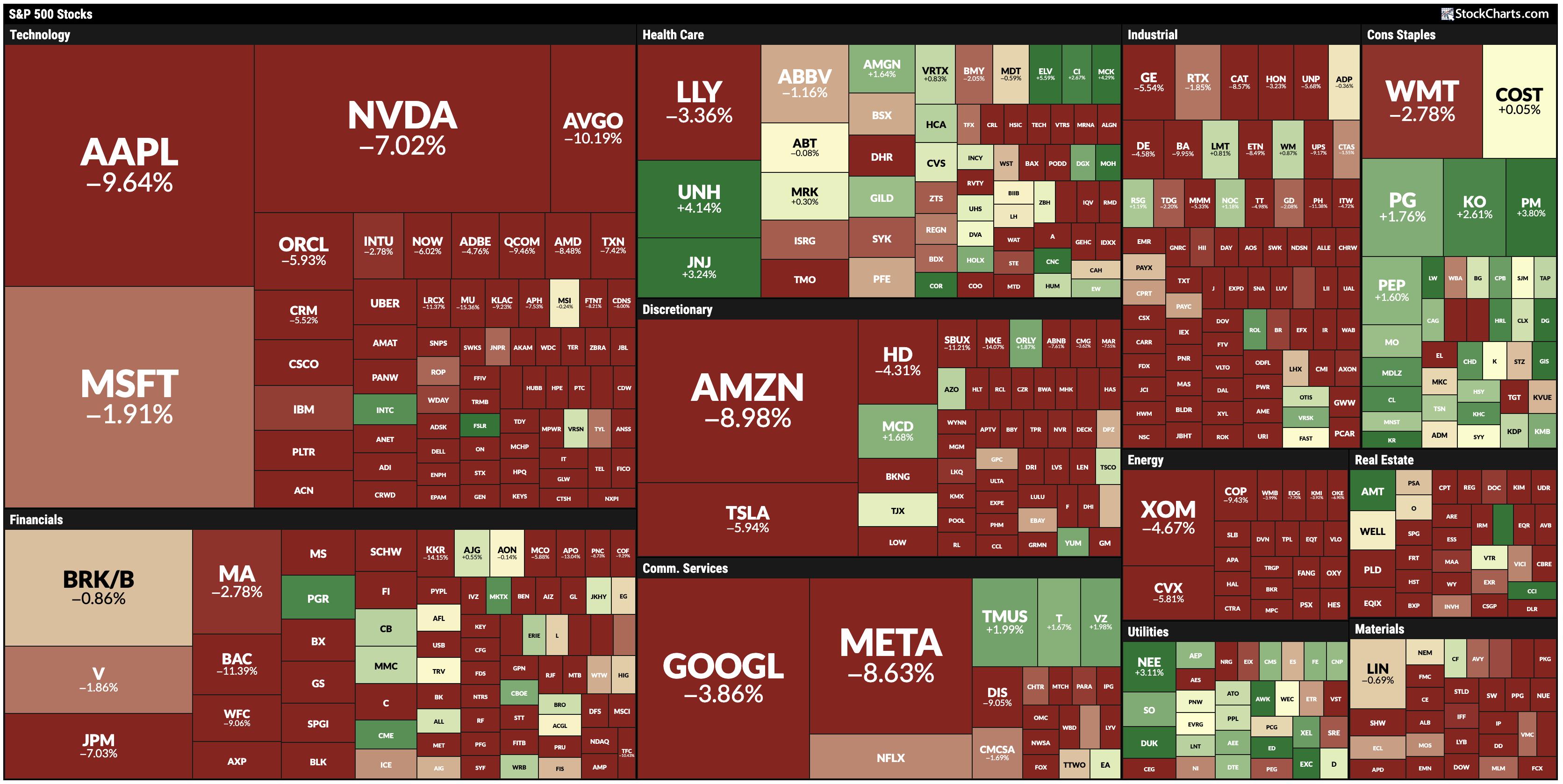I receive dozens of earnings-related questions every quarter from EarningsBeats.com members and non-members alike. They usually revolve around whether "I should hold a stock into earnings?" Let me be clear that, as a short-term trader, I'd be very careful holding any stock into earnings. There are little clues along the way about how a company might report (beat estimates vs. miss estimates), but the initial market reaction can be quite opposite the news, so you must always be on guard. For me, the risk is simply too great to hold into earnings. My capital is my product and deploying it into an earnings report seems so haphazard. It's a big gamble, no doubt about it.
Therefore the first question that everyone should ask themselves is, "am I willing to take the risk?" Some companies are much, much riskier than others. You have to understand that growth stocks' market valuation foundations are built upon FUTURE earnings, earnings growth, and cash flows. Disappointment among these stocks can seem absolutely unfair given some of the market reactions, but it is what it is. Netflix (NFLX) and Meta Platforms (FB) have proven over the years to be great companies, but they've also proven recently that they're not immune to harsh treatment following disappointing earnings and guidance. They both fall into that "very risky" category. Other more defensive companies like consumer staples do not stand way up on a pedestal based on the promise of future growth. Their earnings trajectory is much more predictable. They're not likely to be hit nearly as hard with a disappointment as their aggressive growth stock counterparts.
So everyone must first look in the mirror and understand the risk you're willing to take. Don't hold into earnings and blame everyone else for a large gap down. There's only one person responsible for that loss in portfolio value. You have to determine the risk you're willing to take BEFORE the earnings are released.
I believe relative strength is a critical component, however, to helping you assess risk. Wall Street meets with company management teams and then makes decisions on which stocks to buy and which stocks to sell as earnings approach. By looking at relative strength, it can help provide us probabilities (not guarantees) of what a company might report and what it might have to say in its conference call.
It's the reason we created our Upcoming Earnings - Relative Strength ChartList that we provide our members every week. It's a look ahead at all the companies that will be reporting in the week ahead, but the charts are reflected in terms of relative strength vs. its industry group. For instance, Microsoft (MSFT) would be viewed as a relative chart vs. software ($DJUSSW). The ratio (MSFT:$DJUSSW) is the only thing you'll see on the chart. That way, we compare performance among all of the companies on our ChartList vs. their industry groups. Our current ChartList, which was just completed and published on our website an hour or so ago and contains 332 charts, is available to our ANNUAL members. I want to show you how it can work.
Below is the list of companies that reported earnings this morning and that are featured in this Upcoming Earnings Relative Strength ChartList:

Now here's how these stocks have performed relative to their peers over the past 30 days:

Looking at this second Summary that provides the 30-day relative performance, I think it's clear that the stock showing the best relative performance was TSN, while the worst relative performance was CRNC. When you pull these two relative charts up, I think it's clear that Wall Street was sending completely different signals heading into their earnings announcements. Check this out:
TSN:

CRNC:

Do you see the difference? Check out those "relative" PPOs that depict relative momentum. In the case of TSN, Wall Street has been LOVING what it expected to be great results. This morning, TSN reported EPS of $2.87 vs. the expected $1.90. A blowout earnings report! Both companies actually reported better-than-expected revenues and EPS, so why the harsh treatment of CRNC? Well, first remember it's a growth stock where its valuation is based on its FUTURE earnings and earnings growth. Here's a headline from benzinga.com:

Ouch.
Remember, growth stocks have EVERYTHING riding on meeting or beating estimates AND raising guidance. It was that latter part that triggered the massacre today. Lowering guidance isn't tolerated for a growth company. Let me leave you with this thought:
Do you believe Wall Street firms had NO IDEA of this lowering of guidance after meeting with management prior to quarter end? If you believe they knew nothing, I have a bridge I'd like to sell you. Of course they knew! Relative strength has been horrific and using relative strength as a clue would have enabled you to avoid a MAJOR beating by holding into earnings. By the way, CRNC is down 22 bucks, or roughly 35% - all completely avoidable by checking out relative strength.
At 4:30pm ET today, I'm hosting a FREE event for everyone. It's our quarterly "Earnings Reaction Sneak Preview" event and I'd love to see you there. The room will open at 4:00pm ET and you can join by clicking on the link below at or after 4:00pm ET:
https://earningsbeats.zoom.us/j/81602631755
We host these FREE events for our EB.com members and our FREE EB Digest newsletter community members. If you join the webinar directly from this room link, we'll make sure we add you as an EB Digest subscriber. This subscription is completely FREE and there's no credit card required. You may unsubscribe at any time.
Happy trading!
Tom






